A few weeks ago, one of my readers sent me a link to Steph Davis’ post “Love Dogs.” Ostensibly it’s the story of how Davis lost one companion animal and found another, but it’s more than that. It’s a sweet, moving reflection on the boundlessness of love.
Davis’ story begins with a description of the bond she formed with Fletch, the quiet and self-sufficient dog she’d adopted from the brother of a friend. Davis and Fletch were both uprooted when they met, and they found home in each other. “The life of a traveling climber can be lonely,” Davis writes. “But Fletch and I shared hundreds, probably thousands, of miles of highway and trail. We grew up together.”
When Fletch passed away from spinal arthritis, Davis was devastated. She feared she wouldn’t be able to open her heart to another dog again, and when she did adopt for the second time—a rambunctious stray named Cajun—she struggled to adjust to her new pup’s personality. Cajun was Fletch’s opposite: rambunctious, defiant, and unruly. Davis couldn’t help but compare her unfavorably to the independent and well-behaved companion she’d lost.
Over time, though, Davis’ heart opened up to her energetic new friend. “After two years,” she writes, “I had fallen completely in love with this leaping, prancing, exuberant creature, who could sprint like a cheetah and climb like a goat.” (Her post contains a photo of Cajun, caught mid-air in an olympian leap.) She realized that love doesn’t demand either/or choices:
Fletch was my sensei. Cajun was my wildchild. For the first time, I understood that I loved Cajun with all my heart and I also loved Fletch with all my heart, and love doesn’t have math. I realized that love is not “or,” love is “and.”
The post ends on a particularly poignant note, as Davis describes losing her (human) partner, Mario, and falling in love again some time later. Davis’ experience with Fletch and Cajun had primed her to trust in newfound love, even after a profound loss:
…when it happened I didn’t question it or second guess, though I’d been warned by many that I would. I didn’t struggle with fear or sadness or doubt, thoughts of how life ends and begins, of how to fit together the past and the future, because Fletcher and Cajun taught me something about love. Love is the one thing that has a beginning but not an end, that makes more space the more it grows. It’s the one thing that lasts forever.
My reader said that the article had made her think of me and weekend reading posts, but she couldn’t have known how much the idea of love as a regenerative force would speak to me right now.
In the wake of a great loss it’s tempting to measure everything we encounter in terms of its similitude to the thing (or the individual) we’re mourning. Part of what makes loss so difficult, though, is the singularity of what’s gone—after all, if something were easily replaceable, we wouldn’t feel its absence so strongly. In my experience, healing often means opening ourselves up to the possibility that we won’t be able to revive what’s gone, but we can and will experience new attachments. What’s lost may be irreplaceable, but love is resilient.
Other reads that caught my eye this week include two powerful pieces of reporting on the healthcare system, a peek at the nature of compulsions and compulsive behavior, and a lyrical look at the heroic efforts of individuals who are on a mission to save the Oregon silverspot butterfly. I hope you’ll enjoy them. And first, some food.
Recipes
I’m still on a comfort food kick, and I can’t think of a better way to satisfy the craving than these perfect vegan potato gnocchi. Valentina offers more than a recipe: her post will also tell you everything you need to know for homemade gnocchi success.
Brian’s lentil and green bean salad with crispy tofu is going on my lunch lineup ASAP. So simple and good.
I don’t always have the best luck with homemade veggie burgers, but I know an awesome recipe when I see it, and Alex’s spiced lentil burgers look fantastic.
I love Japanese sweet potatoes, but I’ve never thought to try them as fries. Leave it to Alanna to turn them into the crispiest and most flavorful fries I’ve seen in ages–with a simple recipe for wasabi aioli to accompany them. Yum.
And for dessert, I’m loving Sarah’s creative and colorful recipe for coconut matcha rice pudding with date-sweetened adzuki bean paste. So pretty!
Reads
1. David Epstein and ProPublica’s tough examination of the epidemic of unnecessary health care has been making the rounds recently, for good reason. It’s a sobering indictment of procedures, like angiograms and stent placement, that are prescribed more often than is necessary, often with serious risks and consequences. I appreciate that the authors profile health care providers who stress the potential of lifestyle change, including nutrition, as an alternative to needlessly invasive measures.
2. I’ve never given much thought to medical waste, and that’s part of why this article was an interesting read. Marshall Allen takes a look at the high cost of medical equipment and supplies that hospitals throw away—in spite of the fact that such supplies are desperately needed in the developing world.
3. The Oregon silverspot butterfly used to range from Northern California to Washington’s Olympic Peninsula. Habitat loss—erosion of the coastal dunes and grasslands where the butterfly dwells—is precipitating the species’ disappearance. This article profiles the work of scientists and conservationists who are fighting to preserve the future of this beautiful insect.
4. Sharon Begley’s new book, Can’t Just Stop, takes a look at compulsive behavior in both its extreme and commonplace forms. In this interview, Begley paints an incredibly compassionate portrait of compulsions and the way they work. She suggests that beneath all compulsive tendencies is an impulse that most of us can relate to. Take, for example, hoarding. Begley says,
…One of the things I tried to do is explain in a way that I hope is sympathetic why people who are doing things that society frowns on are acting the way they do. Hoarding, obviously, is worse than frowned on. But the hoarders I spoke to were, in absolutely every case, just expressing an extreme form of something that I think all of us feel. Many, many, many cases of hoarding are because people have an emotional attachment to their stuff. I think we all have an emotional attachment to our stuff. I was working at Newsweek during the turn of the Millennium, 1999 to 2000. I was working the morning of January 1st, and I walked through midtown, and there was confetti all over. I thought, “This is the Millennium confetti.” So I picked up a few pieces and I’ve kept them. It’s not like I have a closet full of the stuff, but absolutely, it means something to me. It was a teeny little tile in the mosaic of my life.
So we all have feelings like that. People who hoard have them to an extreme. It’s not a different feeling, it’s the same feeling, just ratcheted up.
Begley extends the same kind of integrity and empathy to other compulsive habits, as well as to anxiety, which is being diagnosed more frequently these days. It’s a wonderfully down-to-earth interview, and I recognized plenty of the factors that drive my own compulsive tendencies as I was reading it.
5. Finally, Steph Davis’ lovely reflections on dogs and love.
I wish you a great start to the week. It’s dipping back into freezing temperatures and snow around these parts, and I’ve been staying warm with a hearty, spicy soup that I’m excited to share in a couple days!
xo
You might also like
I’ve been thinking a lot about change this week, how it creeps up unexpectedly and often without any help from us. For a while this past spring it was as if I was suspended in time, which at that moment didn’t feel like much of a good thing. The days were long and stifling, overpopulated by anxious thoughts. It’s different now; I don’t feel as if I’m dragging myself through time. The quality of my day-to-day experience is richer and fuller. There’s more…
“Young at Heart” is a ballad that most of us have heard at least a few times; it’s ubiquitous enough to appear in movies pretty often. It happens to have been one of my grandmother’s favorite songs, and the tune she always put me to sleep with when I stayed with her. I don’t know whether she picked this song as my lullaby because she loved Frank Sinatra, or because she thought I’d like it, or simply because it was on her mind…
Happy Sunday, all, and Happy Mother’s day to those who are celebrating it. I’m bringing my mom vegan cake, among other treats, and taking her to dinner. She was honored for her career in teaching this week, and I’m glad that she’s being appreciated on so many fronts. Few family relationships are uncomplicated, at least in my experience, but I’m blessed to have a pretty special relationship with my mom. Still, a skill I’ve picked up as an only child with a small…
A week-long head cold wasn’t how I planned to begin 2019, but the nice thing about having some time off from the DI is that I’ve been able to absolutely nothing in the last few days, aside from drinking tea, answering emails from my phone, and catching up on television. In the past, I’ve been great at talking about the importance of rest and slowing down, very bad at actually doing those things without an overlay of guilt or nervousness about what isn’t…

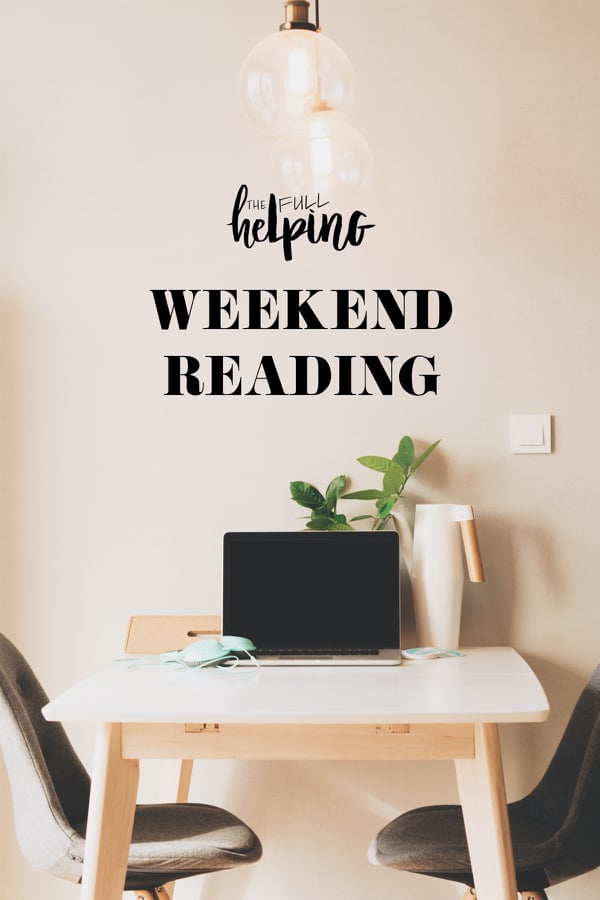
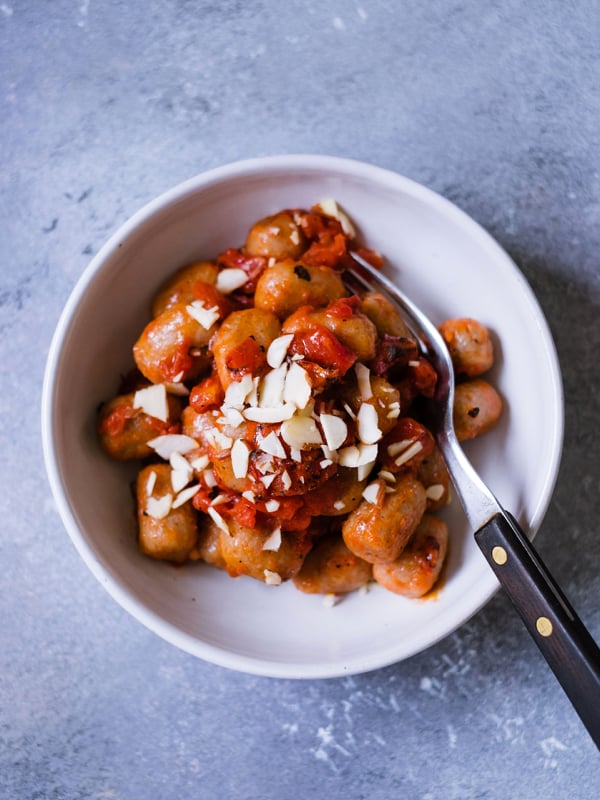

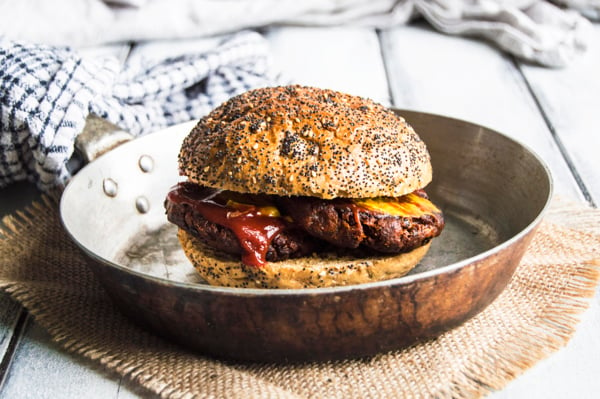
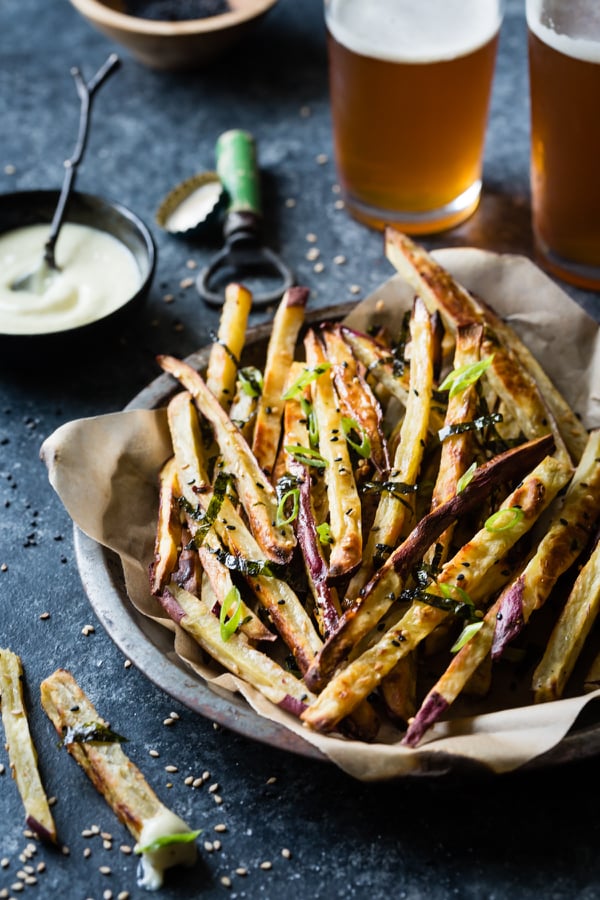
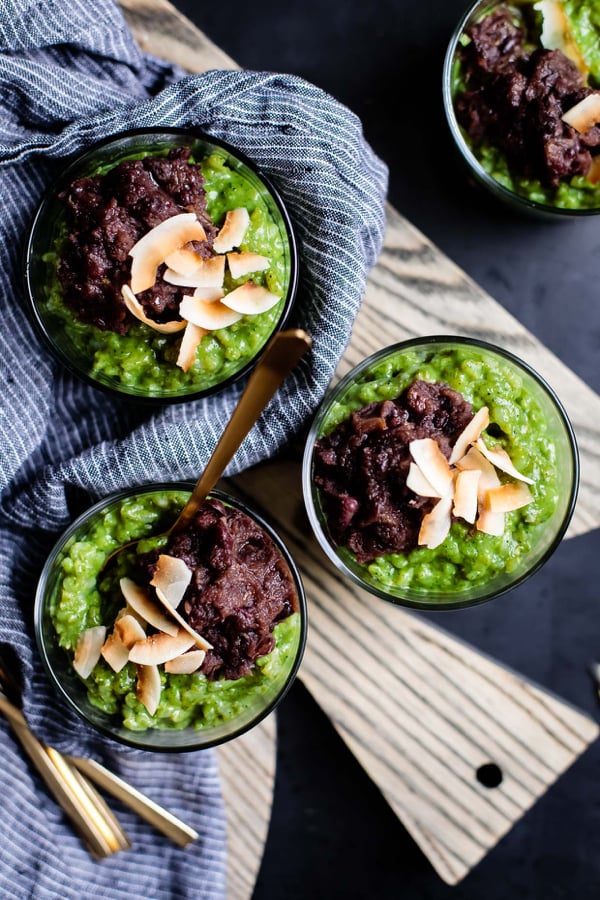
Leave a Comment
HI Gena, I am late to the party again, but oh what a party it is!! I drooled over nearly all the recipes, though I haven’t gotten to them yet–and I was VERY moved, being a dog person, by the Dog Love reference you began with , so much so that I rushed to the link at the end and read it right away, jumping over everything else. I was so taken with the story and the woman who wrote it that I just sent her a message thanking her. So thank YOU for putting Steph Davis in my path. . .i hope to get to the other wonderful articles too. Your weekend reading is like fudge. So rich, I just can’t eat it all at once!! Thank you!! xoxo
Thanks so much for sharing Gena ^_^
xo, have a great week
Aw, thanks for the sweet share! <3 I can vouch for the deliciousness of Sarah's matcha rice pudding – to die for!